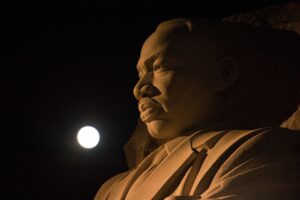‘Unworthy of such power.’ College Board’s leftist monopoly in public education needs to end
For many American students, College Board is synonymous with preparing for college. After all, the organization provides AP classes, administers the SAT, and even offers scholarships.
But for…

For many American students, College Board is synonymous with preparing for college. After all, the organization provides AP classes, administers the SAT, and even offers scholarships.
But for years, College Board has been making sharp lefts turns while remaining ingratiated in the public school system.
On Nov. 1, an AP tutor condemned the organization on social media for inserting political ideology into its tests.
In the example, the correct answer to an exam question assumes that countries with lower birth rates promote more female empowerment. “College Board is teaching your kids a sign of female empowerment=less babies,” the tutor wrote.
In March, a Virginia school district removed a test question from its AP Government class that asked students to associate liberals and conservatives with specific races or genders.
Answers for liberals included “Young, white males,” “Middle aged, urban lesbian,” “College-educated black male professional,” and “White, upper-middle class suburban male.”
Answers for conservatives included “East Coast, Ivy League educated scientists,” “Southern male migrant laborer,” “Catholic, midwestern middle-aged male,” and “West coast, Hispanic teacher.”
According to the Associated Press, the question wasn’t written by the College Board, who is nevertheless the exclusive administrator of AP classes. It was unclear who wrote the question, though the school said it was “designed to assess 12th graders’ understanding of American political ideology.”
In the last couple of years, the College Board has butted heads with Florida Gov. Ron DeSantis over its AP African American Studies curriculum.
The Florida Department of Education sparked controversy for saying College Board’s curriculum “significantly lack[ed] educational value.”
State Commissioner Manny Diaz Jr. even tweeted that the course included Critical Race Theory and was “woke indoctrination masquerading as education.
Diaz later added that all Florida students are required to learn about African American history, but further accused College Board’s curricula of including “queer theory and other forms of one-sided indoctrination.”
But College Board’s hard left turn isn’t a recent event – it’s been twenty years in the making.
A report by the National Association of Scholars (NAS), published in 2020, found College Board began cooperating with the communist Chinese government as early as 2000 through AP Chinese Language and Culture classes, leading to concerns over influence.
And radical philosophies starting creeping into other AP classes, too.
In 2014, 55 historians wrote a joint letter lambasting the new AP history curriculum, calling it “arid, fragmentary, and misleading.”
“The new framework is organized around such abstractions as ‘identity,’ ‘peopling,’ ‘work, exchange, and technology,’ and ‘human geography’ while downplaying essential subjects, such as the sources, meaning, and development of America ideals and political institutions, notably the Constitution,” the coalition wrote.
“Elections, wars, diplomacy, inventions, discoveries – all these formerly central subjects tend to dissolve into the vagaries of identity-group conflict.”
They also accused the material of having “notable political or ideological biases.”
College Board’s AP European History standards were also subpar, critics said.
NAS lamented the absence of concepts such as liberty or economic freedom, the downplaying of communism’s harms, and the failure to mention important figures like Christopher Columbus.
If that wasn’t enough, the people running College Board also have a distinct political bent.
During the 2020 election, Campus Reform and OpenSecrets reported that 98.74% of individual political contributions from people associated with College Board went to Democrats.
Nearly a third of those donations went to then-presidential candidate Joe Biden, with other popular recipients including Sen. Elizabeth Warren and Sen. Bernie Sanders.
While individuals are free to donate to political campaigns, the problem is that those people have a virtual monopoly in College Board’s niche of public education.
More students take the SAT than any other college entrance exam – 1.7 million in 2022 alone. And over a million students take AP classes.
Without any competitors, College Board can push ideology – and collude with foreign governments – all it wants, effectively without consequences.
And public school students who want to excel get stuck in classes that indoctrinate more than they educate.
“[College Board’s] partisan record on the AP US History and AP European History tests have prompted some – including the National Association of Scholars – to suggest that an alternative organization ought to develop nationally recognized, college-level subject matter tests for high school students,” concluded the NAS report.
“The United States needs competitors to the College Board. It has effectively monopolized substantial portions of U.S. high school teaching and has proven itself unworthy of such power.”



